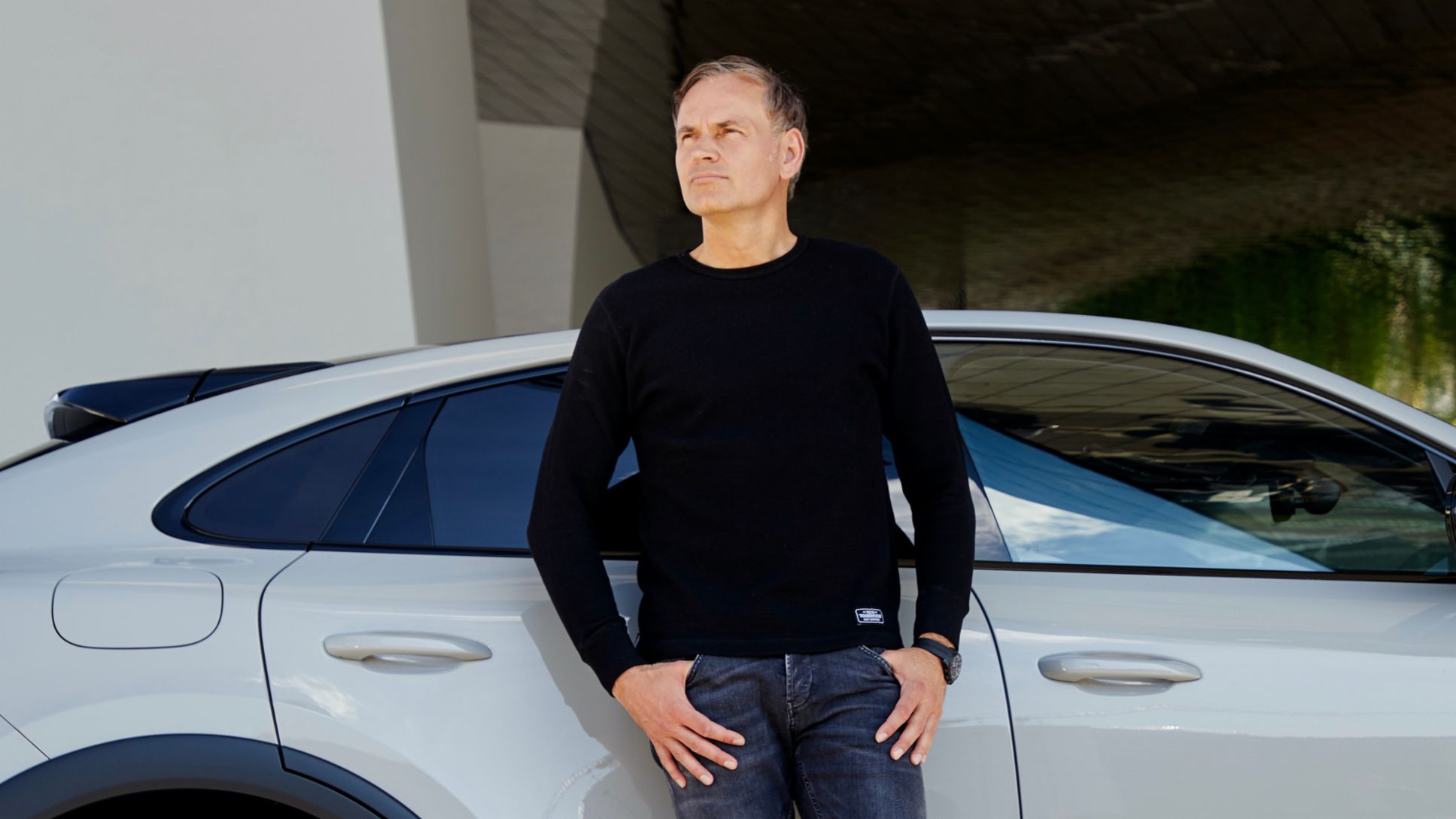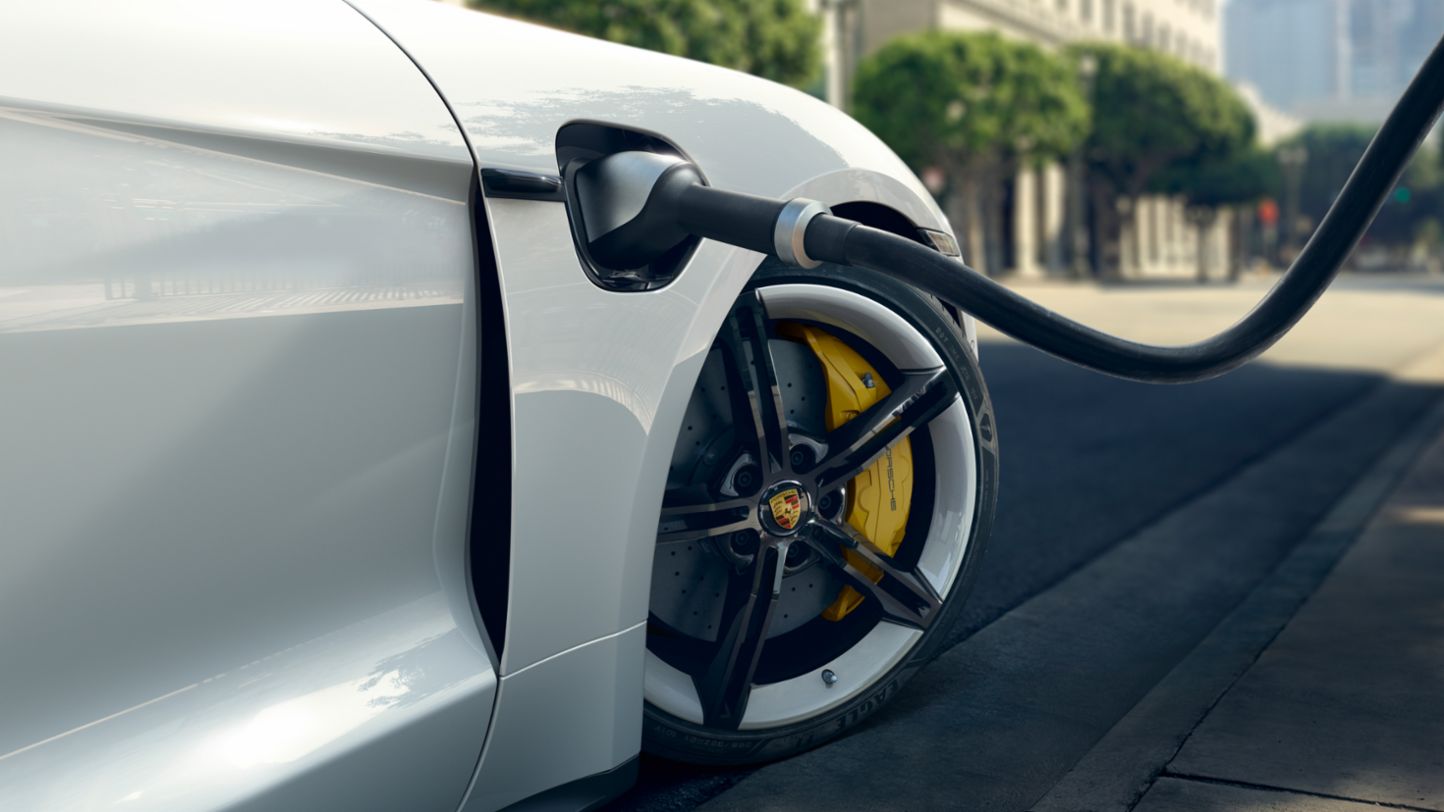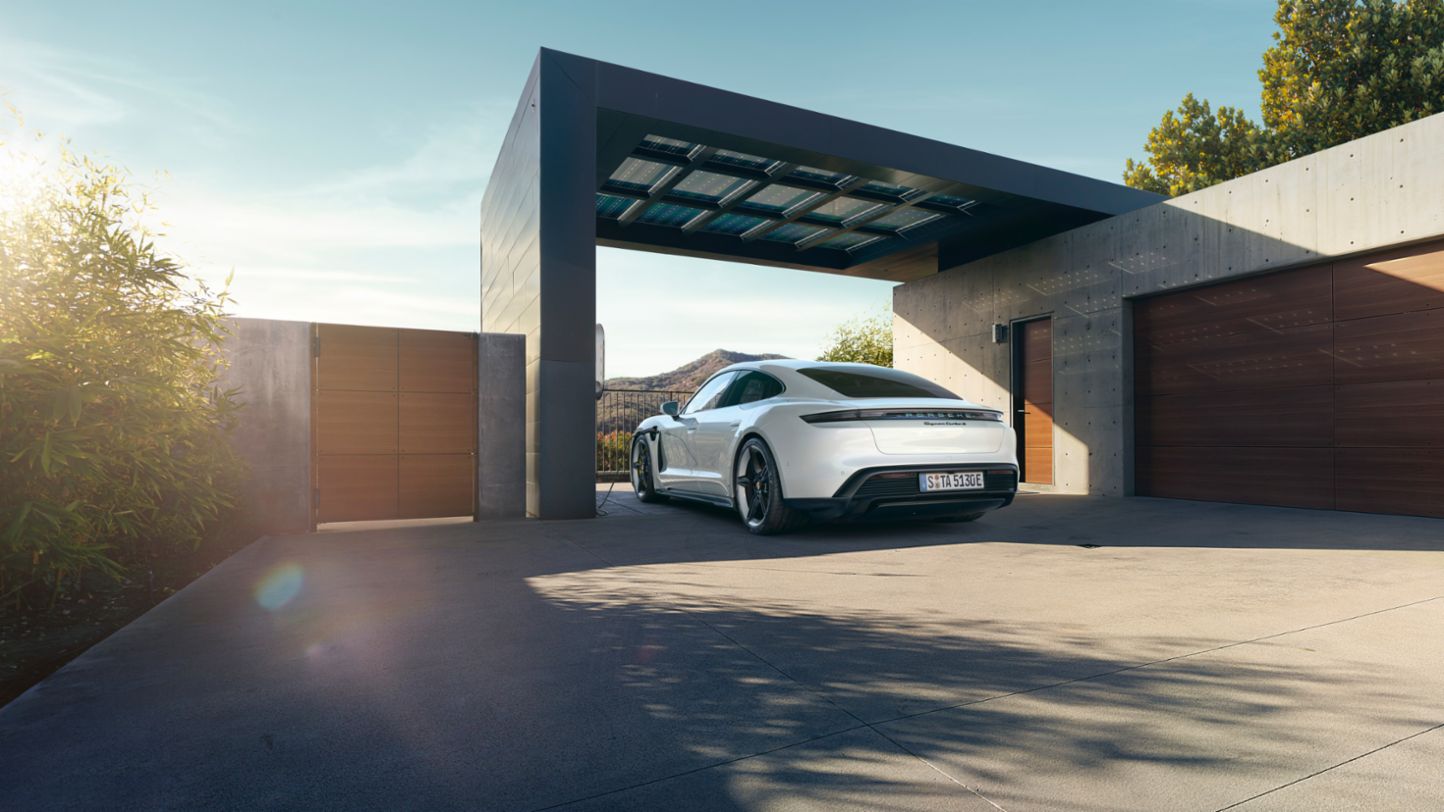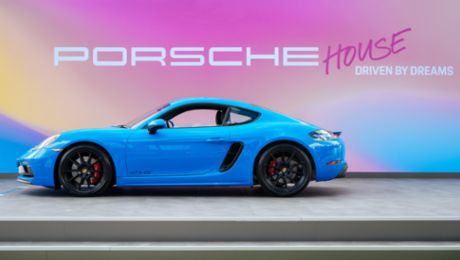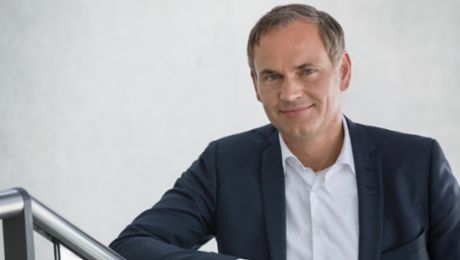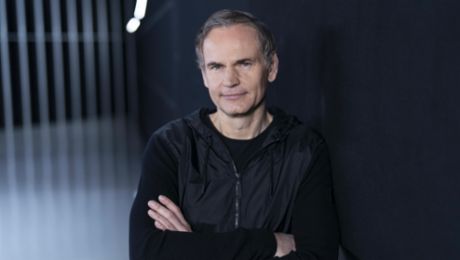Mr Blume, the word on everyone’s lips is climate protection. Have you changed your behaviour as a result?
Oliver Blume: Yes, all the attention towards climate change over the last few months has caused me to reflect on and adapt my own behaviour. Even if it’s just meant changing smaller things such as using public transport more often. And I try to avoid plastic bags by taking my own bags with me when I go shopping. I also carbon offset my flights. There are always ways to improve, starting with your own personal attitude and behaviour.
Do you think many Porsche customers take the same attitude as you or do they still want a roaring engine?
Many customers like both, and this includes me. The three most important reasons for buying a Porsche are the brand, the product and the design. After we launched our first electric model, the Taycan, many customers contacted us to say that was exactly the car they had been looking for. A Porsche driver wants to be a trendsetter with access to the latest technologies. With the Taycan, you can drive a sporty car but with zero CO₂ footprint – driving with a sound ecological conscience so to speak. We are pioneers in sustainable mobility, combining the sports car with sustainability.
What you’re saying is that a Porsche doesn’t need to “roar”?
Some say no, others say of course it does! We offer the customer both driving experiences. This is why we are working hard at continually optimising the emissions of our petrol engines. Many belonging to my generation love the sound of our engines. We have learnt to associate the sound with speed acceleration and driving dynamics. In reality, sound has nothing to do with the car’s driving characteristics or its performance. In the future, my own children will not associate an engine’s roar with a car’s performance. They will expect an innovative, digital car such as the Taycan.
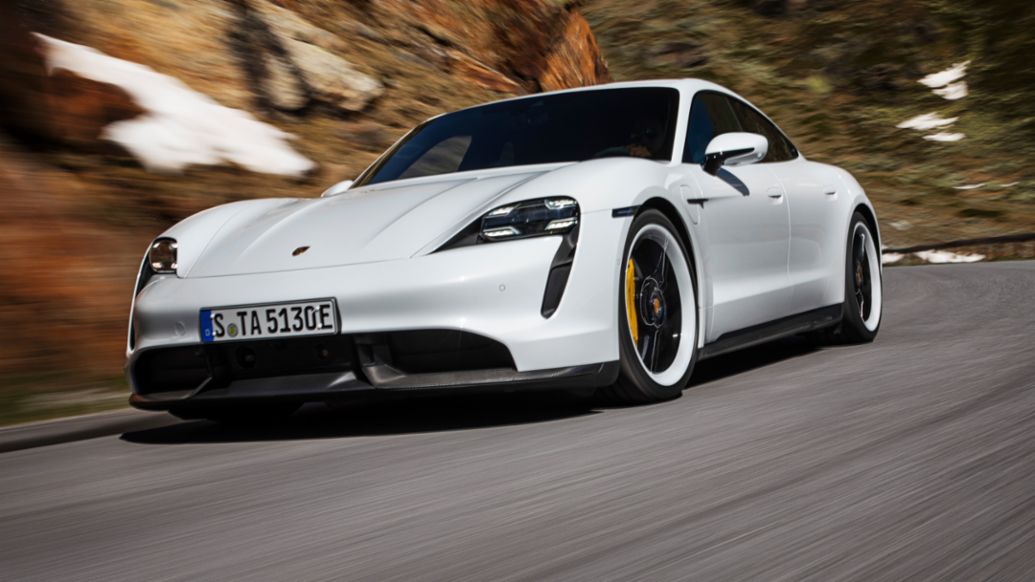
This all sounds like Porsche will soon support the demands of Fridays for Future.
I find it really encouraging that the discussion on climate has been elevated. This gives us new impetus to reflect on our own strategy and pursue further developments. We are focusing on a flexible drive strategy: emotive combustion engines such as the 911, powerful hybrids such as the Cayenne and Panamera as well as innovative electric cars like the Taycan. Everything we do is typically Porsche; we take our inspiration from motorsports and focus on becoming more sustainable.
Some in the car industry warn that the urgency of the climate protection demands could destabilise the industry.
It’s important to find the right balance. Global-sweeping changes cannot be made overnight. Companies carry a responsibility for their workers, jobs and for economic prosperity which make numerous sustainable measures possible through taxation. It cannot happen fast enough from an ecological perspective, however it has to be within the realm of the feasible. In the industry, it is our responsibility to show what is technologically possible and where the limits lie. It’s like in sport: If I set the bar too high, nobody can jump over it.
Your aim for the future is not only to sell electric cars but also reach climate-neutral production. How do you plan on achieving this?
By having a clear, long-term goal. Porsche is striving to become a zero-impact company, in other words a company without a CO₂ footprint. What’s important on the path to climate-neutral production is to set measurable intermediate goals. For example, all Porsche sites in Germany have been using 100 percent green electricity for the last three years. Over the past five years, we have reduced CO₂ emissions per vehicle by 75 percent in production. We also have a clear set of guidelines which our suppliers have to comply with. And a sustainability advisory board comprising well-known experts advises us on our practices. As you can see, we have taken the first positive steps but there is still a lot we have to do.
But still you continue to sell cars with combustion engines which are damaging the climate. How do you offset this behaviour?
When we talk about sustainability at Porsche, we have one clear, guiding principle: The first priority is avoidance, the second is reduction and only then do we talk about compensation. At our CO₂-neutral factory in Zuffenhausen, we prioritise the avoidance of waste and emissions. With every new generation of combustion engine, we have reduced the emissions. Only after that do we deploy a strategy of compensation: For instance, we have launched a programme called “Porsche Impact” where our customers can offset the carbon footprint of their car.
Is the battery really the best energy storage solution? Wouldn’t the hydrogen fuel cell be a more suitable option?
The battery is at least the most marketable technology in the industry today. With its high acceleration values, it is a technology that is highly suitable for sports cars. And it’s a technology that, in terms of energy efficiency, is far superior to other technologies – when used in vehicles, the battery is three times more efficient than the fuel cell and six times better than synthetic fuels because the generated energy is transmitted directly. An important factor whatever the drive type is a high level of renewable electricity, wherever possible.
So does that mean you are only focusing on battery-driven cars?
No, not exclusively. Alongside petrol engines, our product portfolio also includes e-mobility with batteries. In terms of our perspectives, we are also examining the potential of synthetic fuels because we see future possibilities for all our existing vehicles. That said, synthetic fuels are still too expensive to manufacture. In contrast, we don’t see the fuel cell as a feasible option for sports cars; it is more suitable for heavy cars. The decisive factor is developing the right type of drive for the right application.
The Taycan was launched on the market years after the Tesla Model S but still has a shorter range. Do you have to admit defeat to Tesla?
Not at all. I can simply advise you to test drive both cars and decide for yourself. I have a great deal of respect for how Tesla operates and for the innovations they have incorporated into their cars. Measuring an electric car’s range is not straightforward and the results heavily depend on which test cycle is applied. The Taycan has a sporty design and has a range of approximately 450 kilometres in the new European WLTP test cycle. The U.S. cycle is based on a very slow speed profile which is why the Tesla is rated better than our sporty car. For long-distance driving, however, the charging time plays an important role. With its 800-volt network, our Taycan is far superior in this category.
If speed determines the range, what do you think about a general speed limit on German motorways?
I don’t think much of the idea. It is a question of politics. Like many Porsche drivers and many of my colleagues in the company, I regard the fact that there is no speed limit on German motorways as a matter of personal freedom. We should give people this freedom. A speed limit is often used as an argument for reducing the number of accidents. However, the accident rate on German motorways is five times lower than on country roads. Statistically speaking, motorways are among the safest roads in the world. I am against the idea of a speed limit on motorway sections where you can drive safely without jeopardising the safety of others.
Porsche sells increasingly more SUVs which are heavily criticised.
This is a very German discussion which is not understood at all in China or the US. There, people ask why are SUVs in Germany so small? People who drive SUVs are people who have a lot to transport or appreciate the driving comfort and safety of sitting higher up in the vehicle.
The climate package proposed by the German government includes a recommendation to heavily tax cars with particularly high CO₂ emissions such as SUVs. Do you think this is a good idea?
We will have to wait to see what the conclusion to this political discussion is. In general, I think it makes sense to create incentives for more environmentally friendly cars – for example for hybrids and e-cars. This endorses the strategy which we have adopted at Porsche. Lower taxes on climate-neutral cars and an attractive infrastructure are helpful recommendations, but higher taxes are not.
The more SUVs your customers drive, the harder it will be to meet the CO₂ requirements of the EU.
Five years ago, nobody would have believed that Porsche could meet the fleet CO₂ emission value. Today, we can confirm that our strategic course of action will result in us being well below the target requirements in the future. Porsche is an innovative, driving force in this area; as a sports car manufacturer, we will be below the average fleet emission value by 2021 already. And in sustainable terms too.
Info
Interview first appeared in DIE WELT, 25 January, 2020
The interview was conducted by Olaf Preuß and Philipp Vetter.
